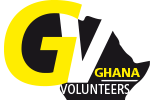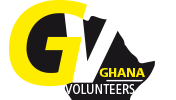TEACHING VOLUNTEER
-
Ghana is a country of dramatic change and optimism, which is reflected in the schools in which we work. Though they are often over-crowded, understaffed and under-funded, a real enthusiasm and a hope for the future seem to permeate through the students. It is going to be hard to maintain this as more and more skilled teachers continue to leave for EUROPE and AMERICA in search of lucrative teaching contract, because of this we welcome any assistance from volunteers to teach basic causes like English, French, Computer, Mathematics or Science from pre-schools, primary, junior high or senior high schools. You don’t need qualification to be part of our teaching project just basic knowledge of the subjects, you can volunteer for a minimum of two weeks and a maximum of 12months.
Your contribution will go a long way to make a difference in a Child’s life. You don’t even need to speak the local language where you are volunteering. The program is open to all volunteers whether you are on a gap year, at university or wanting a career break. All we require is a good standard of spoken English.
You will find a warm welcome awaits you from our students. Assisting teachers in schools with limited resources provides an engaging environment for educating children and teenagers. Your ideas, your energy, and your presence are exciting for students and invigorating for the teachers and parents. The students are full of curiosity about the world around them and they welcome your perspective, you will also serve or be seen as a positive role models to students, you will assist to teach basic causes like English, Computer, Mathematics or Science from pre-schools, primary, junior high or senior high school. You may also be involved in creative projects and non-classroom based activities, which help create a stimulating learning environment.
PROJECT REQUIREMENTS
Project Location: Koforidua, Agona Swedru, Kasoa
Minimum Age: 18
Minimum Duration: 4 weeks
Suitable for Families: Yes
Suitable for Groups: Yes
Language Requirement: English
Arrival Dates: Every day in the week
Work Schedule: Monday to Friday 8AM to 2PM
Dress Code: Teachers are role models in Ghana.
Dress appropriately for a school environment.
Highlights
-
-
Immerse yourself in the authentic rural Ghanaian way of life, embracing its friendly and laid-back atmosphere
-
-
-
Form lifelong connections and expand your global family by living in shared volunteer housing with like-minded individuals from around the world.
-
-
-
Gain valuable firsthand experience in education, perfect for those considering a future in studying or pursuing a career in this field.
-
-
-
Create unforgettable memories as you embark on weekend adventures with fellow volunteers, exploring remarkable destinations like Mole Safari, Park, Cape Coast Castle, and Boti Waterfall.
-
-
-
Personalized placements and timetables ensure that your experience matches your specific interests, whether it’s in primary, junior, or secondary schools.
-
About the program
We offer placements among all classes of the Ghanaian education system, these are:
-
-
Primary School
-
-
-
Junior High School
-
-
-
Secondary School
-

